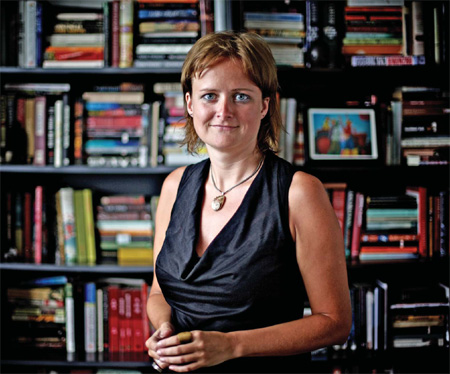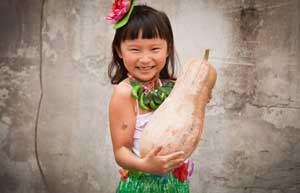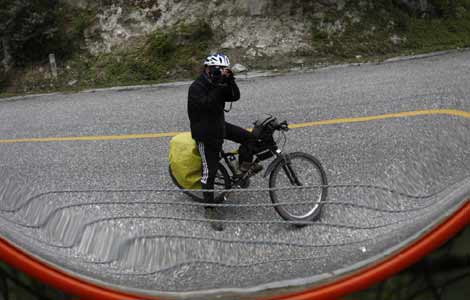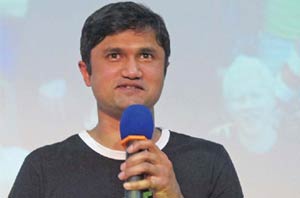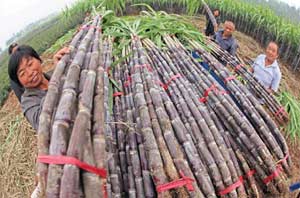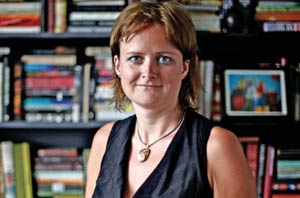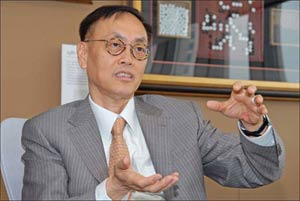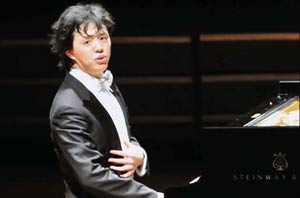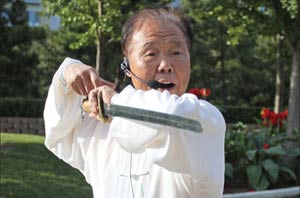Literary figure
Updated: 2011-10-07 11:26
By Liu Xiaozhuo (China Daily)
|
|||||||||
Jo lusby has a knack for picking winners - and for reading the minds of readers, Chinese and Western
|
|
Jo Lusby took a gamble when she urged her bosses at the publisher Penguin to buy the rights to Wolf Totem, the story of a young Beijinger sent to Inner Mongolia on the eve of the "cultural revolution" (1966-1976). The deal caused a sensation because the author, Jiang Rong, was paid 75,700 euros for the worldwide English rights, the highest sum paid for the translation rights to a Chinese book.
Lusby's gamble paid off as the book drew high praise from critics, won the Man Asian Literary Prize and sold well internationally. "A refreshingly new perspective on the "cultural revolution" ... harsh and beautiful," a review in the Times Literary Supplement says.
Now Lusby, managing director of Penguin China, is rolling the dice again with Sheng Keyi's Northern Girl, to be published next year.
It is Lusby's job to know which stories will resonate with Western readers, but there is, apparently, no ready-made formula in making such predictions. "Publishing is an art, not like manufacturing and it's kind of risky," she says.
"When we buy a book, we must have confidence that it represents the best of its type, the best contemporary women's writing, the best classic, the best popular fiction, or the best crime, the best children's books. We also have to believe it can be successfully translated.
"Some books are very difficult to translate. The language and the writing style are too difficult to make it understood by Western readers. People can appreciate these books in Chinese. If it is translated into English, all the beauty of it will be lost."
Manchester-born Lusby, 37, who speaks fluent Mandarin, is confident Northern Girl will not be lost in translation.
It tells the story of a group of young village girls moving to Shenzhen in the mid-1970s. They are the first generation to leave the village for the big smoke.
"It is very Chinese, but this kind of novel is very familiar to Western readers," Lusby says. "These ideas such as leaving home and working outside, maybe having difficulties or success are very established in Western tradition."
Penguin believes Western readers will be attracted by a Chinese story set in an interesting period and that it will resonate with them emotionally.
The books Lusby selects also have to have Chinese themes. "We really need a book to say something from the perspective that reflects something important that is happening in China," she says, adding that it must also talk about "universal things".
She believes that Wolf Totem was a great example of getting it right. Because it is set in Inner Mongolia in the 1970s it is "very Chinese", she says, and is a story only a Chinese person could write.
"But it is about man and nature, modernity and tradition, man against wild, leadership, environmental damage. It is about many other things that we are familiar with in the West."
But Lusby's job is not limited to a mission to tell and sell Chinese stories to the world. The other side of the coin, and one that can be highly lucrative, is the business of publishing English-language books in China.
More broadly the Chinese book market is developing rapidly, she says, in contrast with what is happening in the US and Australia, where book sales are feeling the pinch either as a result of economic hard times or of slumping sales as readers opt to buy their books online.
Globally, Penguin publishes more than 4,000 books a year, and they are designed to have universal appeal, she says.
"We have baby books and also books for people who are 90 years old. In China we especially sell books to young white-collar workers aged 20 to 40 in big cities. But the range of our books is wide."
When Lusby first arrived in China 13 years ago the likes of amazon.com had not even been born. Her first job in China was as an English teacher. After having taught English in Japan for a couple of years, she was looking for something new, and "at that time the development of China was really big and I got very interested". She taught English in Nanjing for two years before moving to Beijing.
She believes good bookshops are critical for publishers, because without them publishers cannot reach or communicate with readers, let alone sell books to them.
"I have always believed that the development of the publishing industry in China will be led by the development of good bookshops."
She cites Page One, which began as a bookshop in Singapore and now has branches in Thailand, Hong Kong, Shenzhen, Taipei, Hangzhou and Beijing, and which has diversified into publishing and distribution. Page One's shops are beautiful, she says, and Penguin has a partnership with it.
But as much as Lusby relishes the confines, small or large, of physical bookshops, she is well aware of the importance of online retailers such as Amazon, Joyo and Dangdang. What online sellers can offer is a huge range and volume of books, and Penguin promotes some of its books on Amazon and Dangdang to enlarge the readership, she says.
As for e-reading devices, often said to spell doom for the printed book, she thinks they have limited appeal.
For many people, she says, e-readers are essentially devices for reading informational material. If it is reading pleasure you want, she says, you opt for the paper version.
"I do not think that our readers are (being) taken away by e-readers and e-books yet."
Lusby runs a twitter-like message service on Sina weibo, a Chinese twitter-like microblogging website, and it has more than 12,000 followers.
Qi Xiao, 26, a website editor living in Beijing, is one of them. He buys many books published by Penguin China, confident that its imprimatur guarantees a good read.
"I follow Lusby on Weibo because she often gives some lovely gifts, such as the bags with Harry Potter patterns, to followers and tells them about upcoming books."
Qi is just one of millions of Penguin book buyers in China, many of them enamored with the small orange, white and black image of a flightless bird that delivers them reading pleasure.
And delivering that pleasure seems to be a large part of what Jo Lusby is about.
"The privilege of a book publisher is to help the readers get the access to the author's books and stories, which are a very personal thing to the author."
